Becoming Adults in a Changing World
Pop-Up Meeting: Growing Up and Growing Out?
The “Growing Up and Growing Out?” pop-up meeting on November 27, 2023, offered a unique opportunity to unravel the complexities of the transition from adolescence to adulthood. This is a dynamic period marked by important changes in social roles of dependency (e.g., parental dependence) to roles of adult responsibilities. Adolescents have a growing need for autonomy, in which they seek more room from parents to exercise their own values, pursue their own goals, and engage in activities aligned with their personal interests. To accommodate the evolving needs of their children, parents must give up a certain degree of power for parent-child relationships to become more egalitarian. Yet, this task is more challenging than it may initially appear. Rather, there is often an autonomy gap between two generations within a household, creating tension, stress, and conflicts that put the family relationship under pressure.
During the pop-up meeting, experts and professionals in the fields of parenting, pedagogy, and developmental psychology came together to learn more about this topic and to share their knowledge. It was a vibrant groups of PhD’s, teachers, professors, and practitioners from different schools, organizations, and universities. This was exactly what we were hoping for when we started working on this pop-up meeting. All these different perspectives proved to inspire everyone and led to interesting group discussions.
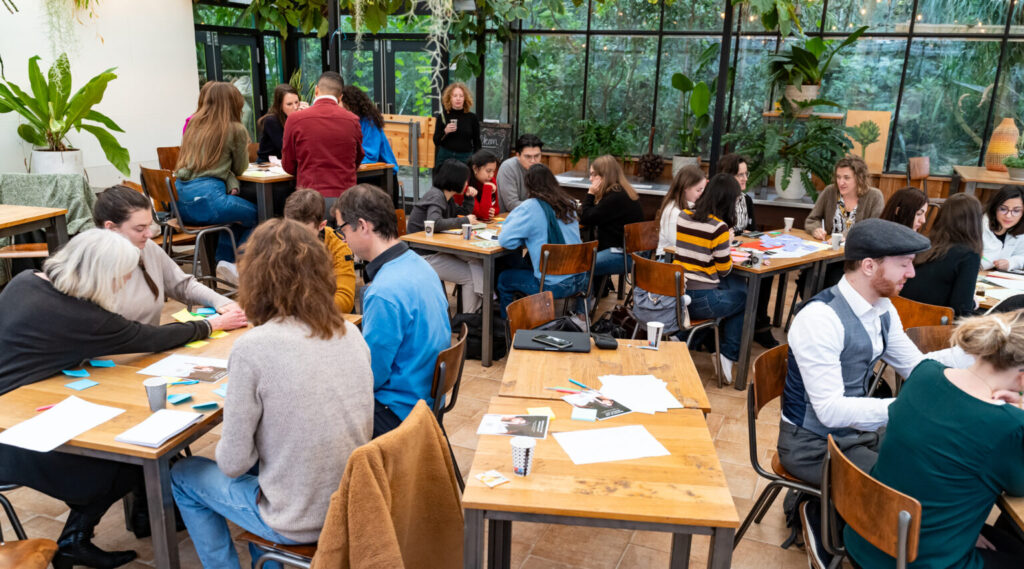
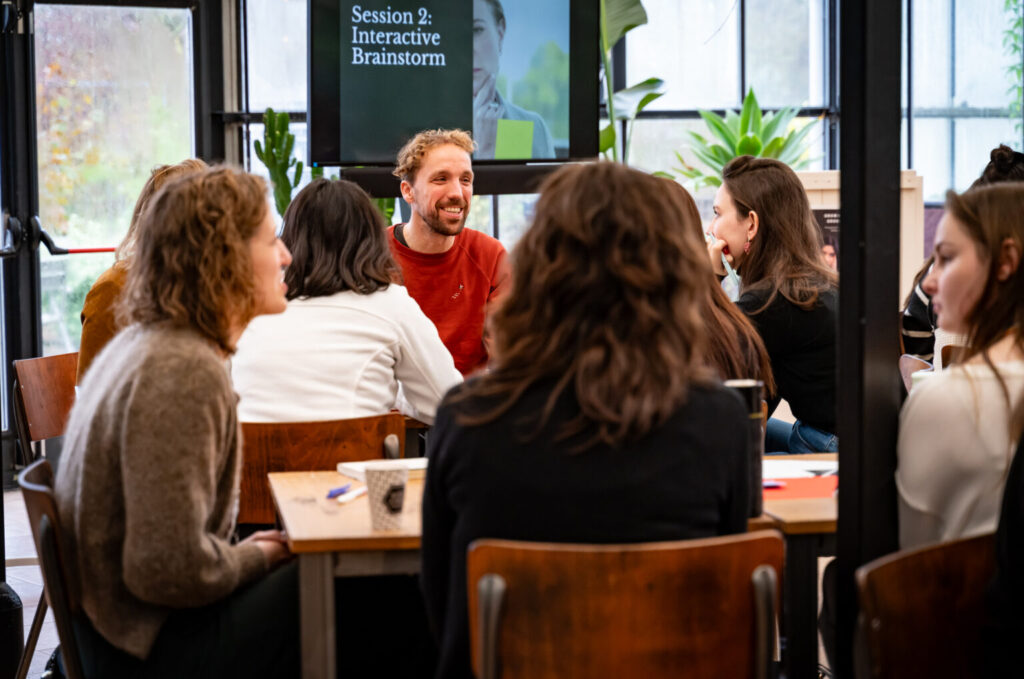
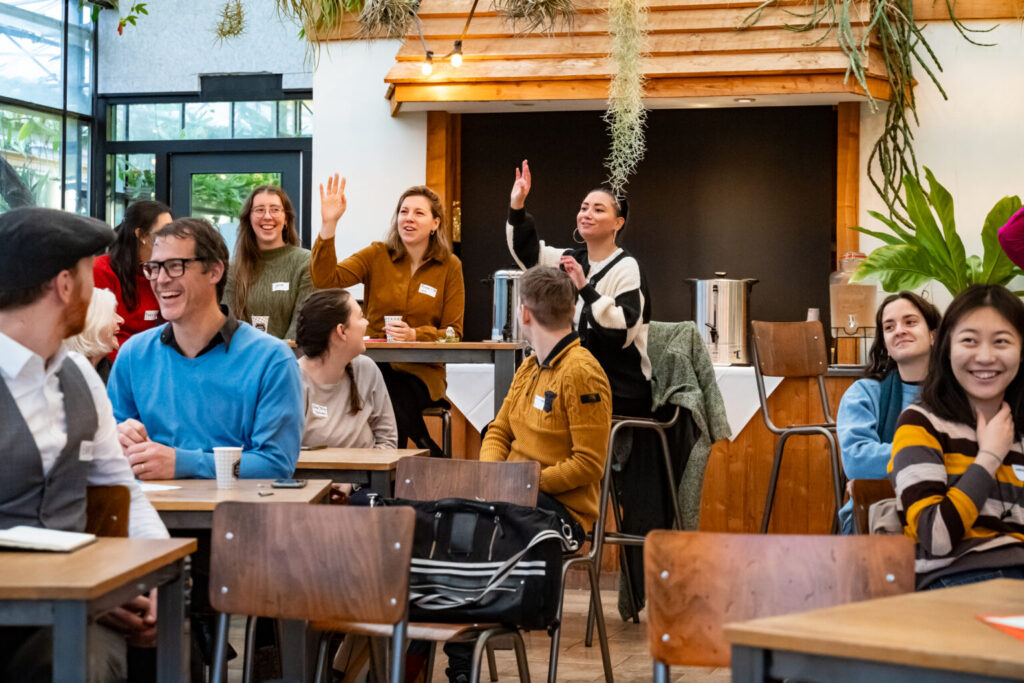
Photos by Laura Hompus, Pixels en Passie
One part of the program, was an exercise called ‘think outside your box’. The aim of this exercise was to discover the overlap between the attendees. It was exciting to learn that there was always overlap to be found, whether it was in methodology, used concepts, or data analysis. Input for these group discussions came from two keynotes, given by Stijn Van Petegem and Abdellah Mehraz.
Stijn Van Petegem‘s research covers a wide range of topics, including adolescent development, autonomy and identity formation, and the ways in which parents may contribute to flourishing and resilience during adolescence and young adulthood. He currently directs the SAFE-SORRY research project, which seeks to identify the ways in which the societal, economic, and cultural context may shape contemporary parenthood. Stijn will discuss the importance of how autonomy is conceptualized, the ways in which parents may foster autonomy during adolescence and young adulthood, and how cultural background may play a role in these processes.
Abdellah Mehraz is a pedagogue and the founder of Trias Pedagogica, a parenting, fatherhood, and intercultural pedagogy agency. Trias Pedagogica offers support on parenting through a variety of methods, including parenting debates. There they address the challenges faced by parents navigating parenting in an intercultural context. During his presentation, Abdellah will discuss Trias Pedagogica’s mission, emphasizing the importance of culturally sensitive parenting and sharing insights into how parents experience parenting adolescents. “One recurring observation is that parents often struggle with the transition from raising young children to dealing with adolescents. Parents have a tendency to continue viewing their children as if they were still in childhood.”
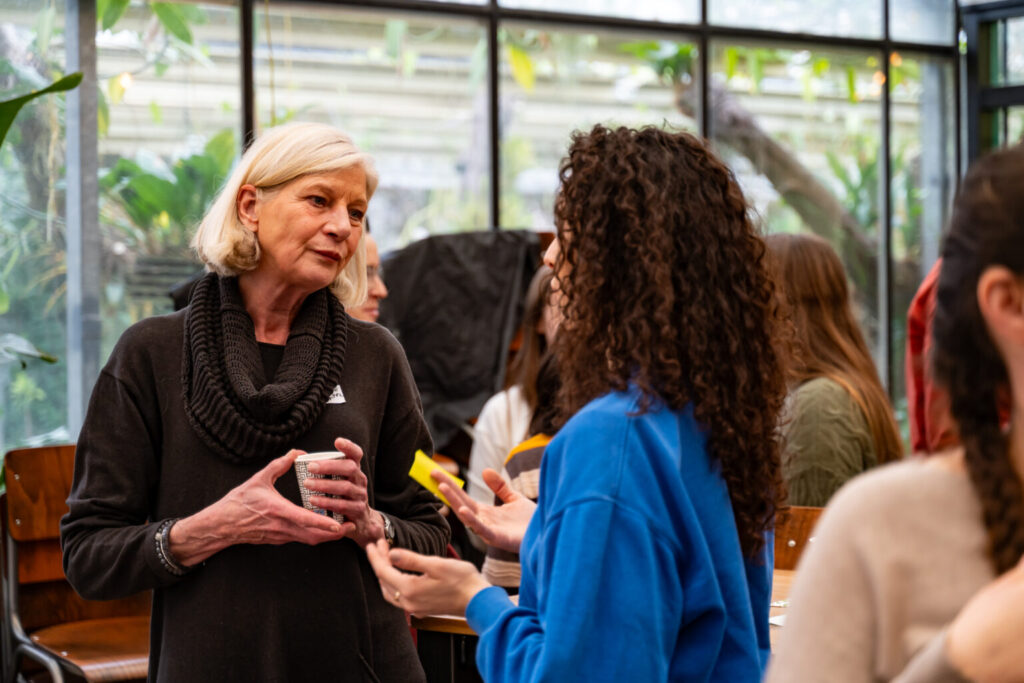
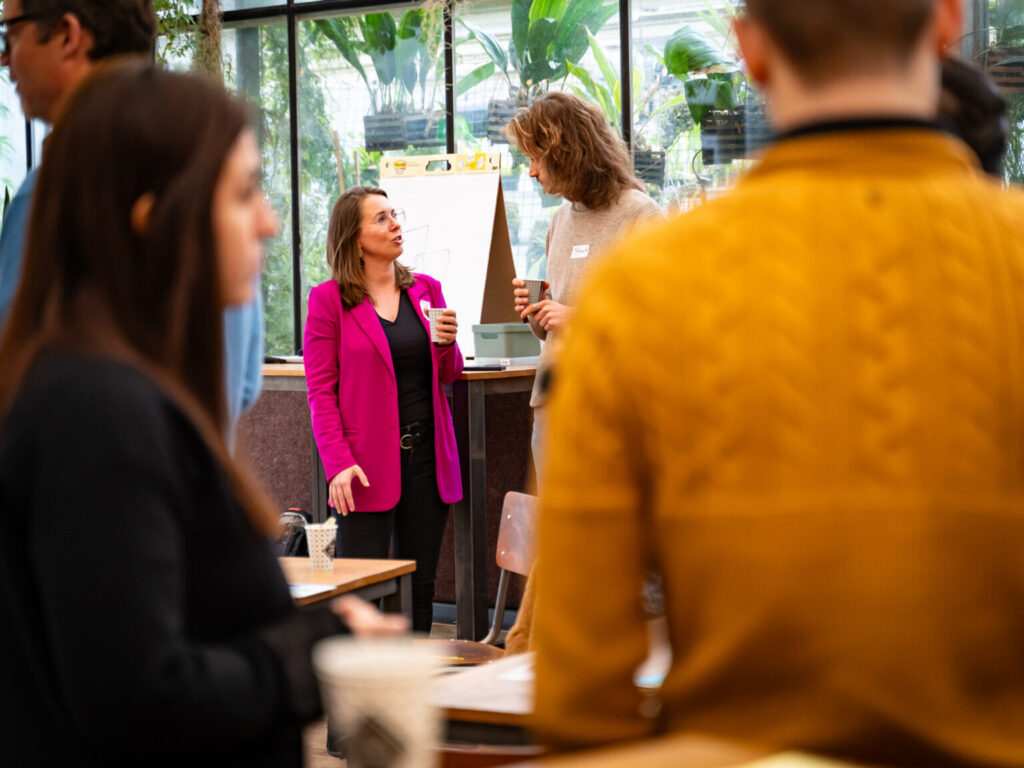
Photos by Laura Hompus, Pixels en Passie
We look back on an inspiring morning where a lot was learned, connections were made, and foundations were made for future collaborations. Do you want to read more? Ouissam wrote a blogpost (in Dutch) about her experiences as well. The blogpost can be accessed though the following link.
We look forward to hosting more pop-up meetings in 2024. Interested in intitiating one? Please send an e-mail to becomingadults@uu.nl.
Below you can view and download the slides that were used.
This pop-up meeting was initiated by Ouissam Abattouy, a PhD candidate who studies the transition to adulthood. Her research delves into the process of balancing autonomy and relatedness among parents and adolescents, particularly within the context of varying socioeconomic backgrounds.

